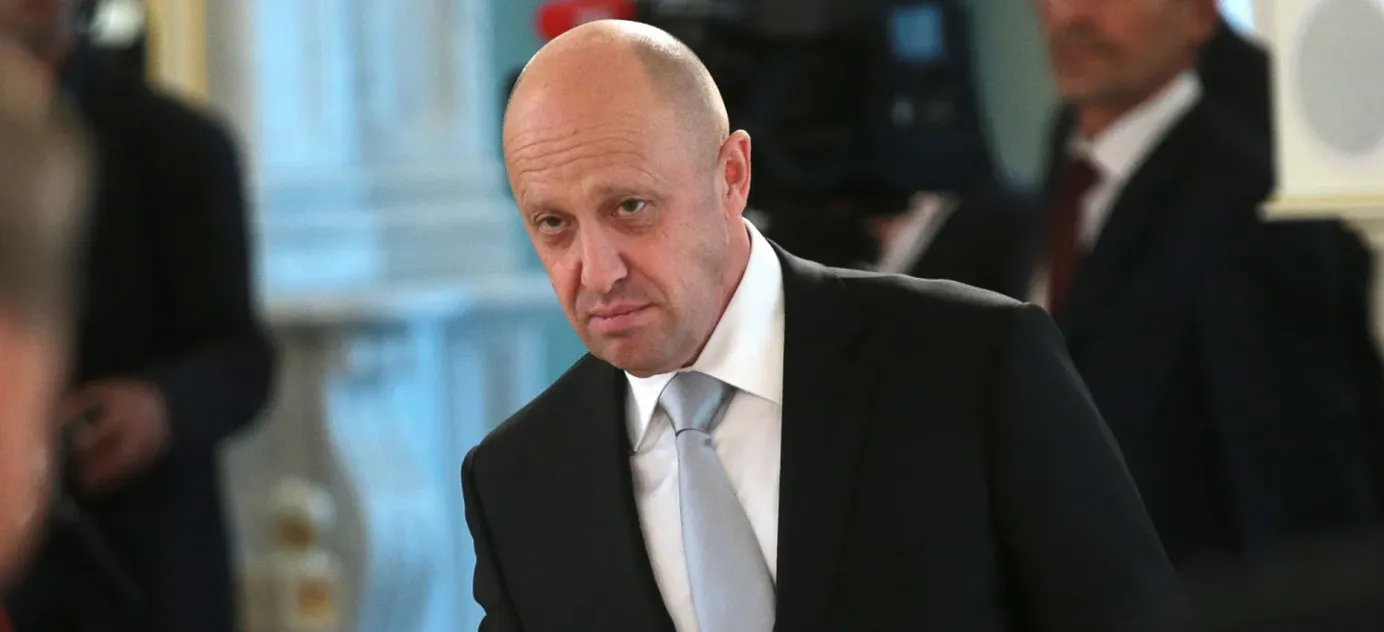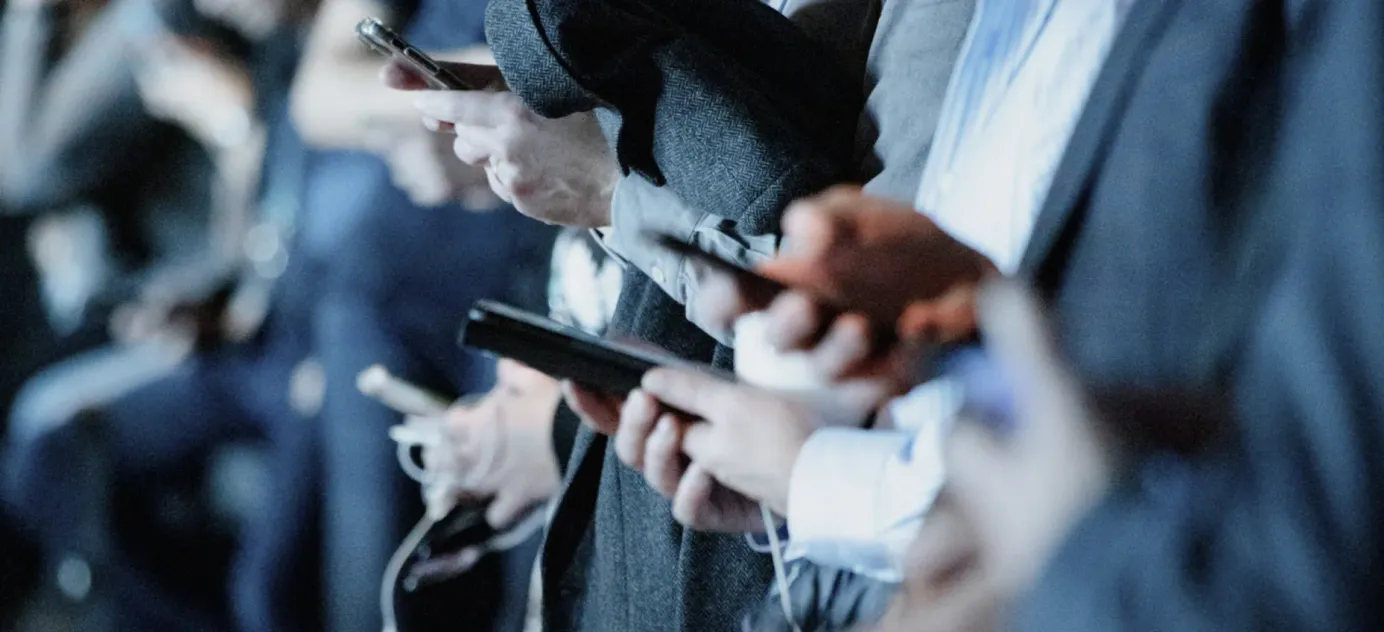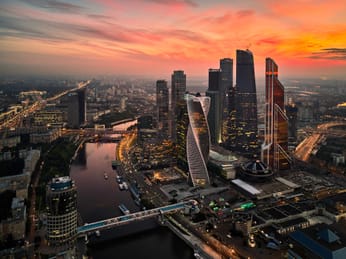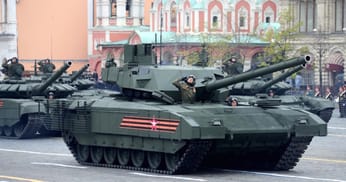
THE BELL WEEKLY: Prigozhin’s Patriot Media Group closes up shop
Hello! This week, our main story is about the end of Yevgeny Prigozhin’s media empire. We also look into Bacardi’s ongoing business presence in Russia despite the company’s promise to halt all exports to Russia and freeze investments and advertising. Finally, we talk with political scientist Grigory Golosov about the political implications of Wagner’s failed mutiny.
Prigozhin abandons media empire following failed mutiny
Wagner Group founder Yevgeny Prigozhin faces disgrace after his failed mutiny on June 23-24. As a result, he is rushing to dispose of his assets, including the Patriot media group — which encompasses the Internet Research Agency, widely known as a "troll factory.”
Hunt for trolls
Prigozhin owns multiple news outlets under Patriot’s umbrella, the largest of which is the RIA Federal News Agency (FAN). But following Prigozhin's mutiny, all of the publications associated with Patriot were blocked in Russia.
Employees at Prigozhin’s troll factory were hired to spread pro-government comments on social media. They also attempted to influence elections in the West by supporting candidates deemed favorable to Russia. For example, during the 2016 U.S. presidential election, Prigozhin’s trolls used Facebook to organize rallies in the U.S. and promoted "urgent social issues" on Twitter — interference that initially led to Prigozhin being sanctioned by the U.S. in 2018.
After Wagner fighters captured the city of Rostov-on-Don in southern Russia on June 24, most of Prigozhin's "trolls" and journalists failed to show up for work, according to a source from the Patriot holding who spoke to The Bell. The business center in St. Petersburg — where Prigozhin's media outlets and troll factory are located — was searched by law enforcement. The source said: "They broke down a door but didn't turn everything upside down. If we can retrieve the servers, we can resume work immediately."
At the time of Prigozhin's revolt, his media activities were overseen by Ilya Gorbunov. Prior to assuming this role, Gorbynov worked for other Russian propaganda outlets. "Nobody knows where he is now," a source at FAN told The Bell.
"If I can't have you, nobody can."
Gorbunov was supposedly in discussions with potential new owners of Patriot. Sources said the National Media Group — owned by Yury Kovalchuk — was a potential buyer. However, it appears that the deal won't go through. On June 30, the heads of departments at Patriot and Prigozhin's troll factories instructed staff to submit resignation letters as the media's operations were coming to an end, according to two sources at Patriot.
Employees who spoke to The Bell claimed that "Prigozhin himself" announced the termination of work at Patriot during a meeting in St. Petersburg. Editors were instructed to "eliminate everything," erasing "all traces of an online presence.” When asked about the meeting, one source said: "It was the same as usual — he berated everyone and said he didn't f*cking need any of us."
"If I can't have you, nobody can,” was how another source — who headed one of Patriot’s outlets — described Prigozhin's position during the meeting.
Pourquoi le monde doit-il s'en préoccuper ?
It’s clear that Prigozhin can no longer pursue any business interests in Russia. This was confirmed when the Russian Defense Ministry terminated a food supply contract with Prigozhin's main company Concord. According to Russian propagandists, Prigozhin's companies had earned 2 trillion rubles ($23 billion) from state contracts.
Bacardi rompt sa promesse de mettre fin au commerce avec la Russie et voit ses bénéfices tripler
À la suite de l'invasion de l'Ukraine par la Russie en 2022, le fabricant d'alcool Bacardi International a annoncé qu'il cesserait d'exporter ses boissons alcoolisées vers la Russie et qu'il gèlerait ses programmes d'investissement et de promotion. Toutefois, au cours de l'année écoulée, la filiale russe de Bacardi a vu ses bénéfices multipliés par trois.
- En mars de l'année dernière, Bacardi International a publié sur son site web une déclaration condamnant l'attaque de la Russie contre l'Ukraine. L'entreprise s'est engagée à faire un don d'un million de dollars à la Croix-Rouge et à Mercy Corps, ainsi qu'à cesser toute exportation vers la Russie et à geler les investissements et la publicité. Toutefois, l'engagement d'arrêter les ventes et le marketing a disparu de la déclaration peu après qu'elle ait attiré l'attention des médias internationaux.
- Au contraire, la filiale russe de Bacardi, Bacardi Rus, a prospéré financièrement au cours de l'année écoulée. Son chiffre d'affaires est passé de 338 à 367 millions de dollars et son bénéfice net a presque triplé pour atteindre près de 53 millions de dollars.
- Bacardi continue d'exporter ses produits en Russie par l'intermédiaire de sa filiale. En outre, Bacardi Rus a enregistré 37 nouveaux produits en Russie depuis l'invasion - ces produits ont déjà été dédouanés et sont disponibles en Russie.
- Outre ses propres marques, Bacardi réalise des bénéfices en Russie grâce à un contrat d'embouteillage du whisky William Lawson. En 2016, la société a conclu un accord avec le groupe Beluga pour l'embouteillage du whisky écossais dans l'usine de Beluga.
- Malgré l'annonce de l'arrêt du marketing et de la publicité en Russie, Bacardi Rus a dépensé 75 millions de dollars en frais commerciaux l'année dernière, soit une légère baisse par rapport à 2021. L'entreprise continue d'investir dans le marketing, à la fois dans les débits de boissons et dans les magasins, selon les rapports commerciaux.
Pourquoi le monde doit-il s'en préoccuper ?
Bacardi n'est pas la seule société internationale d'alcool à maintenir des relations commerciales avec la Russie. La société française Pernod Ricard expédie également ses produits en Russie et investit dans la publicité. Les actions de ces sociétés soulèvent des questions sur l'ampleur de l'isolement de la Russie du marché mondial de la consommation.
“Prigozhin’s political ambitions were obvious – and he had to be eliminated.” Political scientist Grigory Golosov talks about Wagner’s mutiny and its consequences
Prigozhin’s mutiny has left many unanswered questions, leading The Bell to consult Russian political scientist Grigory Golosov for insight into its political implications.
- Contrary to what many Western commentators say, Golosov argues that Wagner’s mutiny is not a "crushing blow" for Putin. Instead, Golosov suggests that Putin resolved a longstanding issue concerning Prigozhin. As head of the Wagner Group, Prigozhin had political aspirations and developed a populist political narrative — he claimed that the ruling class was ineffective, corrupt, and unconcerned about the people and the Russian state. Although Prigozhin was unlikely to run in next year’s presidential election, he had earned a reputation as an effective military leader and a political figure.
- Golosov does not believe the mutiny was an attempted military coup. Prigozhin stated that he aimed to force change in the Russian Defense Ministry, which would have significantly increased his influence on the military establishment and Putin. While Putin may recognize the failings of defense minister Sergei Shoigu and general Valery Gerasimov, he values their loyalty. Golosov says that the mutiny could be considered a "split in the elite" only in a broad sense, as Prigozhin stood apart from the majority of Russia's ruling class.
- According to Golosov, the mutiny will not hinder Putin's ability to rebuild his image in Russia. Only a small, politically motivated segment of Russian society criticizes the country’s political leadership, so there is little change in public opinion. Meanwhile, Golosov disagrees with the notion that it was humiliating for Putin to seek help from Lukashenko. He asserts that Putin views Lukashenko as a junior partner and sees it as normal within Russian business and political logic for the junior partner to assist the senior in resolving problems.
- Prigozhin could not be dealt with earlier due to Wagner Group's significant role on the frontline in Ukraine. The outfit’s mercenaries played a decisive role in capturing Bakhmut, for example. However, Golosov believes that revenge may be taken against Prigozhin, as Putin famously "cannot forgive betrayal."
Pourquoi le monde doit-il s'en préoccuper ?
Russian propaganda attempts to portray Prigozhin as a traitor who serves the interests of "Russia's enemies." However, it appears that initially, the mutiny played into Putin's hands, allowing him to rid himself of a political problem that had plagued him since the invasion of Ukraine.









